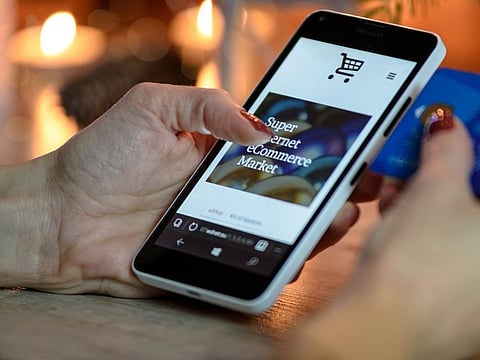7 tips for safe online shopping in the UAE
While end-of-year sales abound, follow these tips to ensure you are browsing safely

Dubai: With the holiday season comes the season of gifting. Add to that the parties you will attend and the end-of-year sales and you have a perfect shopping storm. More and more people are shopping online across the world. In fact, in the US this year, more people will shop online during the holiday season this year than in brick and mortar shops, a first, according to a study by US-based research company The Harris Poll and OpenX, an online ad company.
With that in mind, it is crucial to ensure you do not compromise on cyber safety. A 2016 study from Kaspersky, a cyber security firm, noted that while 42 per cent of UAE residents have fallen victim to cyber crime, only 21 per cent believed there is a threat. Less than half - 47 per cent - have installed security protection on their computers and mobile devices.
Follow these top tips to surf safely to your heart’s content while you shop online:
1. Shop from reliable online stores
While this might seem to be an obvious tip, many online shoppers can get sucked into unreliable websites through ads on social media, for example. It can also be a tempting offer on a website that uses parts of well-known brands. Daniel Markuson, the digital privacy expert at NordVPN, a VPN provider, shared this tip for online users: “Look for the obvious signs that identify a fake e-shop: poor website design, broken language, suspicious domain names (e.g. famous brand names with extra words like ‘deal’ or ‘sale’ thrown in, such as “michaelkorsdiscounts.net”), shady contact information, poor customer reviews, and so on.”
What is VPN?
VPN – short for Virtual Private Network – allows a user to bypass monitoring online by connecting to a virtual network. While there are some free VPN providers, many ad-free versions charge a monthly or yearly fee. This can vary significantly, depending on the speed and flexibility of the provider. Once you have an account, the VPN makes your connection more secure and helps you stay anonymous. It also provides access to sites that might be blocked on your network. It does this by connecting to a global network of servers that mask your original Internet Provider address.
2. Look for secure surfing
Another important tip shared by NordVPN highlighted the need to understand how weblinks show up on your browser. “An address of a safe website should start with ‘https://.’ The letter S stands for ‘secure’. Also, look for a padlock symbol in the address bar next to the website address. It means the connection is secure and no one can read or modify the data that travels between you and the website you’re visiting.”
3. Use strong and unique passwords.
This might seem to be a no-brainer but Password123 is not supposed to be your standard password across domains. It is crucial that you use unique, strong passwords, that use alphanumeric and special characters. Why? Because, one of the most common ways that hackers break into computers is by guessing passwords. Simple and commonly used passwords enable intruders to gain access and control of a computing device.
In a 2017 interview with Gulf News, a Dubai-based IT manager Shias Siddique shared this suggestion: “The password is the first step towards online safety. We all come from different parts of the world, try to create a password in your native language as an attack hacker’s use is called the dictionary attack, which is based on certain words that you find in the dictionary.”
4. Avoid public WiFi
One of the biggest traps most users fall into is the lure of free WiFi in public places. But let’s be honest — who doesn’t love free WiFi? Checking our phones has become an impulsive reaction to boredom, so whether you are at a shopping mall, at a doctor’s clinic or waiting for the bus, most people would not think twice before logging in to a free WiFi network. If you do use a public WiFi, access it through a VPN service, which will encrypt your access and protect it from interception by hackers.
5. Beware of phishing scams
Another tip shared by NordVPN was to not enter your sensitive information or banking details in any pop-up windows on suspicious emails. Don’t download any attachments or click on any links in messages from e-shops you’ve never visited. Fraudulent emails hide malware and viruses to infect your computer. According to NordVPN’s digital privacy expert, you should always verify the email’s sender and contents before clicking on anything inside.
6. Register for double verification
Most banks already offer a double verification requirement before any payment is made using your credit card or online shopping card. If not, speak to your relationship manager on how you can further secure your card from fraudulent use.
7. Know your rights
Always read the details of the product you are shopping. Look at the return policy and any caveats in the fine print, which might make it harder for you to claim a refund in case you are dissatisfied with the product, or if it is different from the details provided on the website. In case you are shopping from a UAE-based website and are unhappy with the product and the complaint resolution, you can raise your complaint with the Ministry of Economy. File your complaint here or by calling 600522225.



